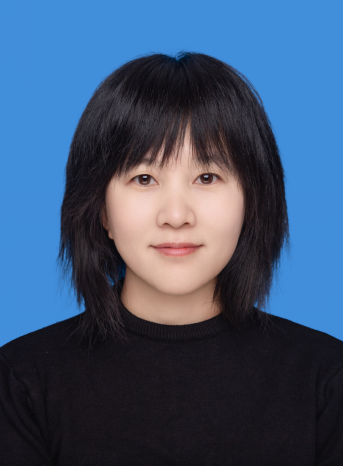Department of Integration of Chinese and Western Medicine
Lichao Wang

Lichao Wang, Ph.D.
Assistant Professor
Department of the Integration of Chinese and Western Medicine
School of Basic Medical Sciences, Peking University
Contact Information
E-mail: wanglichao@bjmu.edu.cn
Research Expertise and Interest
1. Cellular senescence in natural aging and related disease.
2. Pharmacological targeting of senescent cells with natural compounds.
It is essential to understand the molecular mechanisms underlying aging to develop innovative strategies for alleviating age-related diseases and extending longevity. Cellular senescence, a state of permanent cell cycle arrest triggered by stress or damage, has emerged as a key driver of age-, and disease-related tissue decline. However, most of transgenic mouse models that investigate senescent cells only target p16 high cells. Dr. Wang focuses on the heterogeneity of senescent cells and explores the previously unrecognized senescent cell population that contributes to aging and related diseases by leveraging novel mouse models. The overall goal is to establishes pharmaceutical interventions to slow aging.
Education/Working Experience
03/2025-Present Assistant Professor in Peking University School of Basic Medical Sciences, Peking University.
11/2018-02/2025 Postdoc in UConn health Center on Aging.
09/2015-06/2018 PhD. in Pharmacology, China Pharmaceutical University.
09/2012-06/2015 M.S. in Pharmacology, China Pharmaceutical University.
09/2008-06/2012 B.S. in Traditional Chinese Medicine Resources and Development, China Pharmaceutical University.
Professional highlights
(1) Gut microbiome changes associated with p21 high cell clearance in aging
Glenn Foundation for Medical Research Postdoctoral Fellowships in Aging Research by American Federation for Aging Research, 7/1/2023-6/30/2024, $75000, PI. (https://www.afar.org/2023-grant-recipients)
(2) Proteomic mechanisms of lifespan and healthspan extension by targeting p21 high cell in vivo
San Diego Nathan Shock Center Pilot Grant Program, 10/24/2022-05/31/2023, $19200, PI. (https://www.salk.edu/science/research-centers/san-diego-nathan-shock-center/funding-and-workshops/)
Selected Publications
1. Wang L#, Wang B#, Gasek NS, Zhou Y, Cohn RL, Martin DE, Zuo W, Flynn WF, Guo C, Jellison ER, Kim T, Prata LGPL, Palmer AK, Li M, Inman CL, Barber LS, Al-Naggar IMA, Zhou Y, Du W, Kshitiz, Kuchel GA, Meves A, Tchkonia T, Kirkland JL, Robson P, Xu M. Targeting p21Cip1 highly expressing cells in adipose tissue alleviates insulin resistance in obesity. Cell Metab . 2022 Jan 4;34(1):75-89.e8. (#, co-1st author, a peer pre-reviewed paper)
2. Wang B#, Wang L#, Gasek NS, Kuo CL, Nie J, Kim T, Yan P, Zhu J, Torrance BL, Zhou Y, Flores LC, Allen C, Andrade AM, Guo C, Cohn RL, Jellison ER, Bartley JM, Kuchel GA, Li S, Pirtskhalava T, Tchkonia T, Yadav S, Haynes L, Kirkland JL, Ikeno Y, Xu M. Intermittent clearance of p21-highly-expressing cells extends lifespan and confers sustained benefits to health and physical function. Cell Metab . 2024 Aug 6;36(8):1795-1805.e6. (#, co-1st author)
3. Wang B#, Wang L#, Gasek NS#, Zhou Y, Kim T, Guo C, Jellison ER, Haynes L, Yadav S, Tchkonia T, Kuchel GA, Kirkland JL, Xu M. An inducible p21 -Cre mouse model to monitor and manipulate p21 -highly-expressing senescent cells in vivo . Nat Aging. 2021 Oct;1(10):962-973. (#, co-1st author, F1000 recommendation)
4. Liao LX#, Song XM#, Wang LC#, Lv HN, Chen JF, Liu D, Fu G, Zhao MB, Jiang Y, Zeng KW, Tu PF. Highly selective inhibition of IMPDH2 provides the basis of antineuroinflammation therapy. Proc Natl Acad Sci U S A . 2017 Jul 18;114(29):E5986-E5994. (#, co-1st author)
5. Wang LC, Liao LX, Lv HN, Liu D, Dong W, Zhu J, Chen JF, Shi ML, Fu G, Song XM, Jiang Y, Zeng KW, Tu PF. Highly Selective Activation of Heat Shock Protein 70 by Allosteric Regulation Provides an Insight into Efficient Neuroinflammation Inhibition. EBioMedicine . 2017 Sep;23:160-172.

